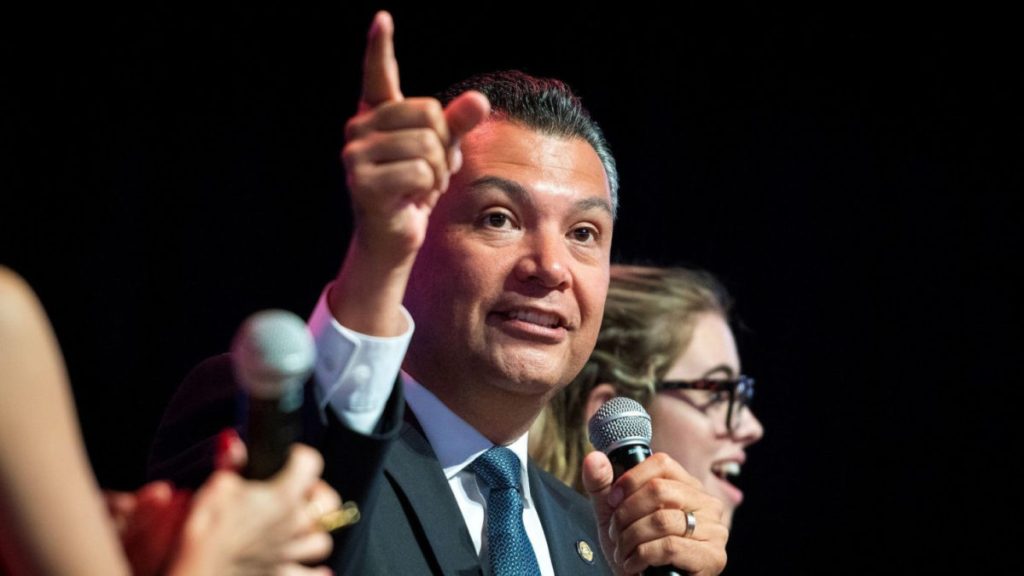By Peter White
Washington D.C. – Senator Alex Padilla is the newest member of the U.S. Senate. He took Kamala Harris’s place when she was elected Vice-President. He is still adjusting to the volume, the magnitude, and the pace of the work.
“l’ve been busy before in my life but nothing compared to what that last few months have been like.” Padilla said.
He said that although every issue is a big issue, these are unique times.
“We’re still in the midst of a once-in-a-century global health pandemic. We’re still in the wake of the deadly insurrection of January 6—to think that within my first few weeks as a senator I would participate in the impeachment trial, was part of the crafting and passing of the American Rescue Plan (ARP), one of the biggest acts by Congress since the New Deal—it’s been a lot,” he said.
Padilla said the ARP is a reminder of the power of government to do good when the will is there. “We’ll try and make similar types of big bold progress in a number of issue areas,” he told a group of minority reporters last week.
Padilla is the son of Mexican immigrants. His father was a short order cook and his mother cleaned houses to raise Padilla, his brother and sister in San Fernando Valley, where he still lives.
“I’m proud that my first piece of legislation that I’ve introduced in the senate gives our frontline workers a pathway to citizenship that they have earned and that they deserve,” he said.
Padilla sent President Biden a letter urging him to include a pathway to citizenship in his infrastructure package for an estimated 5 million undocumented immigrants, who the federal government considers essential workers.
According to a 2016 study by the Center of American Politics, undocumented workers contribute $4.7 trillion to US GDP, $11.7 billion in state and local taxes, and $12 billion in social security revenue every year. Padilla noted that the U.S. workforce is growing less than 1% annually. He said immigrants and children of immigrants would meet the country’s future labor needs.
“We can’t simply rely on hardworking people to keep our nation afloat and keep our community safe in times of crisis and then turn our backs on them as soon as the pandemic is over. That would just be wrong,” he said.
But Padilla’s Citizenship for Essential Workers Act faces the same Republican opposition in Congress that other Democratic bills are facing. They include the John Lewis Voting Rights Act, the U.S. Citizenship Act of 2021, Biden’s infrastructure package, the George Floyd Justice in Policing Act, and two gun safety bills, which passed the House, but are stalled in the Senate.
“Can we get 60 votes?” Padilla asked. “That’s just not there,” he said. He was referring to immigration reform, but could have been talking about half a dozen other major pieces of legislation.
“The question is: do we do it piecemeal through individual separate pieces of legislation with separate votes, or as a package?”
“There is a possibility to get 60 votes for some of these reforms but I want to have options because I want to get this done, so reforming or abolishing the filibuster, I think there’s a lot of candidates for that.”
In addition to an infrastructure package and the voting rights bill, Padilla noted that a climate agenda would advance more quickly if the Democrats eliminated the filibuster.
“If we need to change the rules and get that done with less than 60 votes, then we open the door for many things including immigration reform,” he said.
The senate parliamentarian recently green-lighted using the budget reconciliation process to pass at least parts of Biden’s infrastructure package. While not ideal because bi-partisan passage would be both quicker and more comprehensive, 50- plus-1 votes in the senate will at least make some progress towards undoing the damage done by the Trump administration.
“I think we can make a similar case for moving immigration policy through a budget reconciliation process. We’re using an all of the above approach while we’re negotiating the specifics,” he said.



